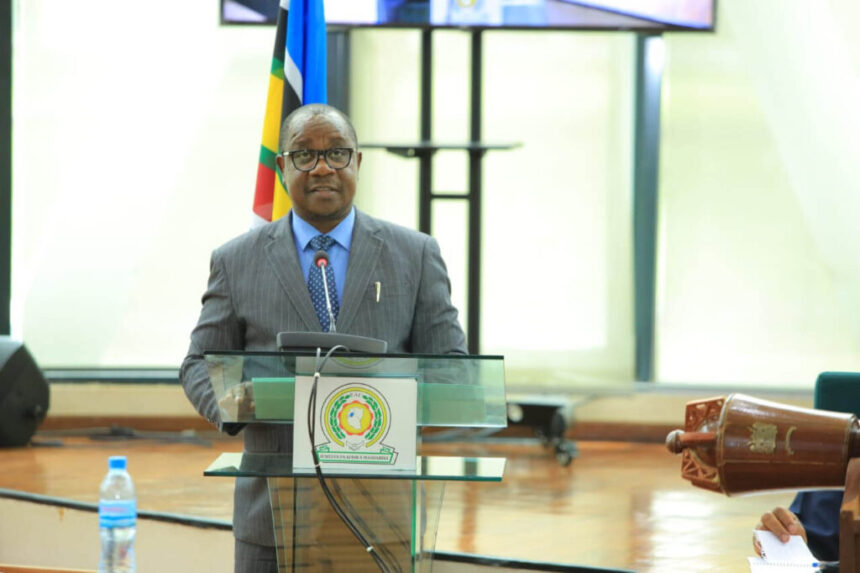The East African Community (EAC) has submitted the budget estimates for the 2023/2024 Financial Year to the East African Legislative Assembly (EALA), amounting to $103.842 million. This figure marks an increase from the previously approved budget of $91.57 million for the 2022/2023 Financial Year.
Presenting the budget speech to the Assembly, Hon. Dr Ezéchiel Nibigira, the Chairperson of the Council of Ministers and Burundi’s Minister for EAC Affairs, Youth, Sports, and Culture, acknowledged that the EAC economies were currently facing global shocks arising from various factors such as the Russia-Ukraine conflict, tight global financial conditions, the lingering effects of the Covid-19 pandemic, and the impact of climate change.
Despite these challenges, Dr Nibigira noted that the region’s economic growth had improved, reaching 4.8 per cent in 2022 compared to 3.5 per cent in 2021. The strong performance of sectors such as industry, services, construction, mining, and manufacturing primarily drove this growth.
However, the Minister also highlighted that global economic growth was expected to remain weak due to anti-inflationary measures and geopolitical risks. He emphasized the importance of prudent government policies, increased public and private investment, and the robust performance of the services sector in driving the positive outlook for the EAC economies.
Dr. Nibigira revealed that total trade within the EAC had increased by 13.4 per cent to $74.03 billion in 2022, with exports to the rest of the world valued at $20.139 billion and imports amounting to $53.891 billion. Intra-EAC trade also experienced growth, reaching $10.910 billion in 2022, a rise of 11.2 per cent from the previous year. Key traded products within the region included cereals, cement, iron and steel, live animals, petroleum products, sugar, and food and beverages, reflecting the region’s transition from agriculture-based to industry-based economies.
The 2023/2024 Budget theme is “Accelerating Economic Recovery, Climate Change Mitigation, and Enhancing Productive Sectors for Improved Livelihoods.” The EAC’s priorities for the upcoming fiscal year include strengthening regional governance processes, increasing private sector engagement and public participation in the integration process, harmonizing trade-related policies and regulations, and streamlining customs and trade facilitation systems to boost trade and investment.
Other focus areas encompass the harmonization of fiscal and monetary policies, the leveraging of modern technologies to enhance productivity and regional supply chains, the enhancement of regional productive capacity and value addition, the strengthening of social sectors for improved welfare, the improvement and expansion of cross-border infrastructure, and the capacity building of EAC organs and institutions.
Through this proposed budget increase and strategic focus areas, the East African Community aims to overcome economic challenges, promote regional integration, and foster sustainable development in the member countries.


